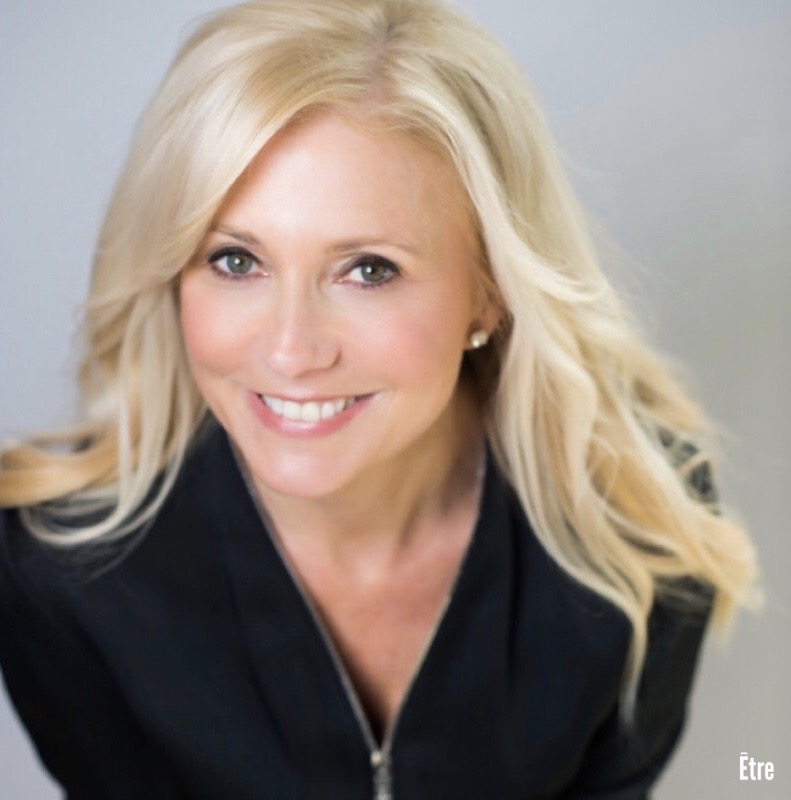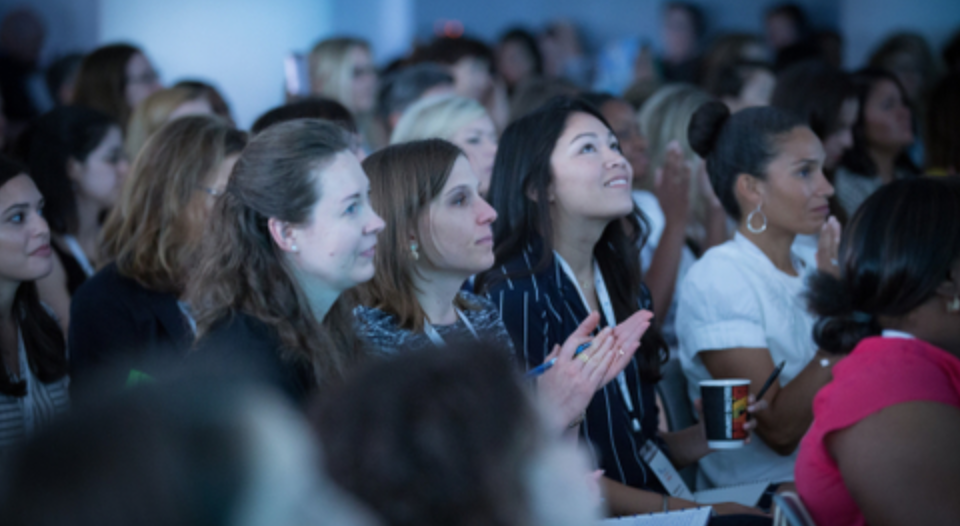You could almost feel the energy before you walked in. Women arrived breathless, shaking off the rain from a sudden NYC storm, in anticipation of a day they knew would mesmerize. This was, after all, Ellevate Network’s third annual #MobilizeWomen Summit, and word had gotten out. You can’t imagine – girlfriends last year said knowingly – everyone was there. After the keynote, another would add, the standing ovation lasted three minutes. My office is sending all of us this year, the emails continued, and I’m not letting you miss it. And so, they all came.
Worth. It.
From Ellevate CEO Kristy Wallace’s opening remarks to Ellevate Chair and Ellevest CEO Sallie Krawcheck’s rousing conclusion, every seat was filled and every pen was poised. No one wanted to miss a word. And no one wants the younger set left out. So, for the girls out there hoping one day to enter this pipeline, here is a sampling of the wise words shared – both on stage and backstage…
…about standing up and standing out:
“Civic engagement can begin on day one. The fact that you’re not eligible to vote [yet] doesn’t mean that you can’t be an active, engaged citizen right now…You are never too young to start doing your homework and learning about what’s happening in your own community. I think service begins local, at first, and is a good way to learn and look into the eyes and hearts of the people whose lives you are touching.” Valerie Jarrett, Senior Advisor, Obama Foundation and ATTN:
“Seek out the people you want to surround yourself with, and who you know will respond to the story you want to tell. Ava DuVernay said something really important – Why am I knocking on the door that they’re not going to open? Find the door or make your own door….[then] find the thing that makes you YOU. People are attracted to that. Don’t be Lucas. Don’t be Spielberg. Don’t be Lena. Be you.” Hannah Beachler, Academy Award Winning Production Designer
…about disability and strength:
“How can you know what you can be if you can’t see? How do you study Spanish if you can’t hear? I had to figure all of that out…[but] a disability shouldn’t stop you from doing anything. The important thing is to find out your strengths, and then develop solutions to challenges based on those strengths. It’s very different for each person…so young women should be eager and willing to innovate solutions specific to their needs. ” Haben Girma, Disability Rights Lawyer, Author, Speaker
“It’s really important to remember that middle school can be an emotionally fraught time for everyone, especially when you are a person of any sort of minority. I was the only person with a visible disability in my grade. But I was able to find strength from my mom and my teachers, and then they became my mentors.” Emily Ladau, Editor in Chief, Rooted in Rights; Disability Rights Activist
…about mentorship and direction:
“One of the ‘secret sauces’ of goal setting [in Girl Scouts] is that mentorship becomes a habitual and accepted part of our operation…if someone has a skill or an ability, or earns a patch, that skill is passed down and taught to the younger girls. By the time they are in high school, mentorship is ingrained and doesn’t have to be formalized. That’s what you want.” Meridith Maskara, CEO, Girl Scouts of Greater New York
“Mentors are important, but you have to remember that my way of doing things might not be your way. So listen, learn and decide for yourself. To mentor someone is a big responsibility, and I take it really seriously.” Kiersten Barnet, Global Head of Gender-Equality Index, Bloomberg
“In terms of a mentor, the way I define it is the person who is pointing you in the right direction. The biggest question for young girls is: in what direction are you headed? Are you leaning in the direction of entrepreneurship? Are you leaning in the direction of community-based action? Based on that direction, we can put other women in front of them who are already in that area and point them forward.“ Stacey Flowers, Speaker, Entrepreneur, Eternal Optimist
…about success and innovation:
“I just asked one of our graduates: What did you learn at Barnard? And she said, The most important thing I learned was that when another woman succeeds, it’s not my failure. And I thought that was a really important way to characterize some of what we’re teaching…that when these women go off to lead, they need to do it together.” Sian Beilock, President, Barnard College at Columbia University
“[In order to innovate] we need adults to mentor and coach us, and invest in us. To be inclusive, accept us and help us. We need those resources…for organizations and companies to be a resource and help and support us.” Taylor Richardson, Astronaut StarBright; teen advocate, speaker, philanthropist
“I agree, we need [adults] to support us, encourage us and also teach us about the mistakes that you guys made as well, so then we can learn from that and hopefully not make them again – so we can grow.” Ashley Voisin, Entrepreneur, teen engineer, designer
…about resilience, revolution and what comes next (hint: it involves breaking a wheel):
“My mother was not like the role models that we have been talking about at this conference – I have been completely on my own since I was 16. So the support that I have received has been from women…women that look just like all of you. Sometimes, complete strangers that just gave me a hand. And this made me brave. It made me resilient.” Ericka Kelly, 17th Command Chief Master Sergeant for the Air Force Reserve
“Be willing to take the truth with you everywhere…even into the [decision-making] room. Don’t let comfort become more important than truth. We have to fight hard for what we deserve, not just what we think we can win.” DeRay McKesson, Civil Rights Activist
“So the answer for us, I think, is to ‘break the wheel’…to come together, as we do at Ellevate Network, to do business with each other, to advise each other, to invest in each other’s businesses, to tell somebody about a Board position, etc…That’s how we break the wheel and move forward.” Sallie Krawcheck, Chair, Ellevate Network and CEO & Co-Founder, Ellevest
It took the room’s breath away and for a brief moment there was no sound. Then awed expressions broke into wide smiles and whispers gave way to cheers. Ellevate outdid itself this year with the issues addressed and the bright minds amassed. Girls, we did the best we could summarizing the key takeaways, but at some point you’ll have to see it for yourselves. Tell your mom, big sister or ultra-cool aunt to mark their calendars for next year. Your ticket or live stream link awaits.
We’re holding your place.
***
Être is proud to be a #MobilizeWomen Media Partner for the third year in a row, and is grateful to Ellevate for sharing their valuable resources with today’s motivated girls.


